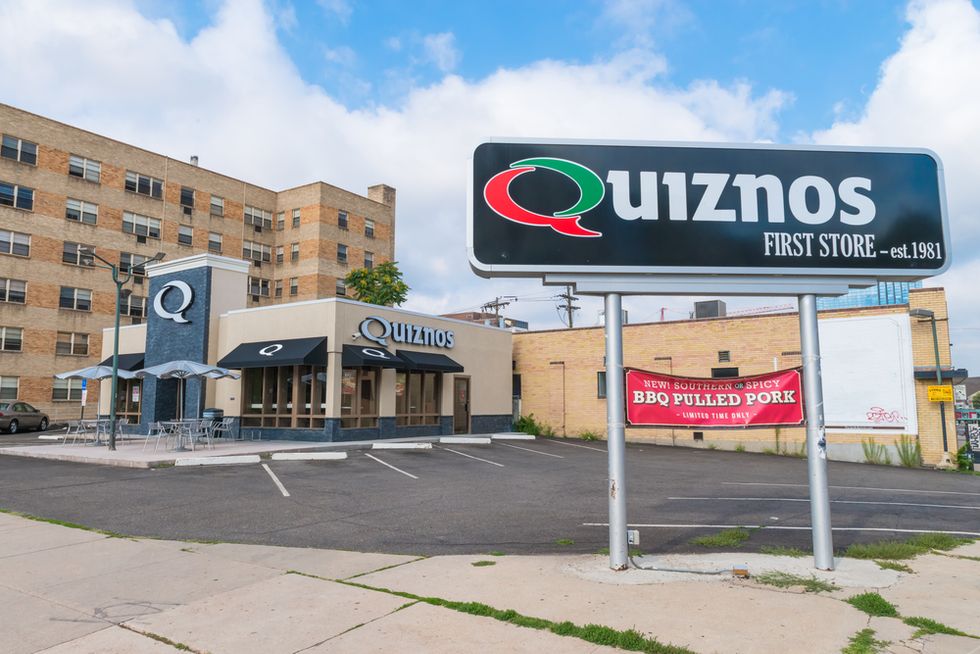
The stories are legion about people who’ve breathed new life into their careers with a franchise or even a slew of franchises. But there are some pretty notable misses in the franchise business, as well. Just think Quizno’s or Curves, two franchise systems that, for different reasons, have faltered: Quizno’s, the once promising sandwich shop, is now in bankruptcy; and Curves, fitness centers for women of a certain size, is a shadow of its former self. RELATED: Thinking of starting a franchise? Watch these tutorials! While it’s true that nothing in life is guaranteed, you can do quite a bit to minimize your risk by thoroughly checking into a franchisor’s track record. The federal government requires all franchisors to disclose much useful information in its Franchise Disclosure Document (FDD), and then, of course, the franchisees can tell you firsthand about their experiences with the company. Critical to your background research is your conversation with the franchisor. Most franchisors will have a standard protocol for potential new franchisees that include in-person and telephone meetings with selected executives as well as lots of reading materials to introduce you to the franchisor’s system. You need to use this opportunity to zero in on the issues that are critical to helping a new franchisee succeed.
9 Key Questions To Ask Franchisors
Here are nine key questions to ask franchisors:1. How much will it cost to purchase the franchise?
These numbers will be broken down and listed in the FDD, but you want to hear what the franchisor has to say on the subject. If they try to sugarcoat the costs in any way that doesn’t match your background research, alarm bells should sound in your brain. You always want the facts delivered to you straight. After all, one of the worst positions you can find yourself in is to have run out of capital before your business becomes profitable.2. What is the background of the business and company executives?
While this information, including previous litigation, will be listed in Items 1-3 of the FDD, you want to get a sense of who these people are. Follow your gut. If you feel someone isn’t being genuine or truthful with you, stay away.3. How old and established is the franchise?
Ask executives about how the company has evolved and, ideally, improved over the years. If it’s a fairly new franchise, what are the company’s plans for growth, and how will they help their franchisees to succeed?4. What is the success rate of franchisees?
They may give you a rosy window into franchisee success, but you can ask good questions if you’ve first read about any claims the company may have made in the FDD. You should also be more knowledgeable if you’ve already interviewed franchisees for whom you can find contact information in the FDD.5. What type of training program does the franchisor offer?
How much ongoing support will you get? Are particular executives assigned to your region? Will you always be able to get someone on the phone for a consultation?6. What exactly is involved with the system?
You need to determine if this this a system you are capable of following. Also is the system sufficient to help you achieve success. Sometimes, newer franchises may still be working out the kinks.7. If things go badly for a new franchisee, what does the franchisor do to help?
Is there a triage system of some kind? Good franchisors should have adequate support to help you during the start-up phase, when you may hit a few stumbling blocks.8. How competitive is the market?
It might seem like some business sectors are flooded with competitors. Maybe that means the field is too crowded. That might, however, be a sign of strong, growing demand. You will want to know how the franchisor feels about local competition, and what plans they have for helping you to succeed in a competitive market.9. What activities does the owner spend their time on?
Just because McDonalds sells hamburgers does not mean that the owner spends their days flipping burgers. When you first consider a franchise, the role of the owner might also be surprising. You will want to learn what tasks take the owner’s time. Then, you can assess if you have the right skills and interest to excel in those areas At the end of the research, after you have talked to several franchisors and narrowed down your list to one, you will visit the franchisor on a Franchise Discovery Day. Check out whether the infrastructure is actually in place. Is there a training center? Are the executives interested in you? Can you establish a good rapport with them? And only then will you be ready to proceed. Of course, before you sign on any dotted line, you will want advice from objective experts, such as a good franchise attorney. This post was originally published at an earlier date.
This post was originally published at an earlier date.Related Posts
Think You’re Ready For A Franchise Discovery Day? Not So FastWorried About Starting Your Own Business? Try A FranchiseThe Image Factor In Buying A Business

 Bigstock
Bigstock Bigstock
Bigstock Bigstock
Bigstock


